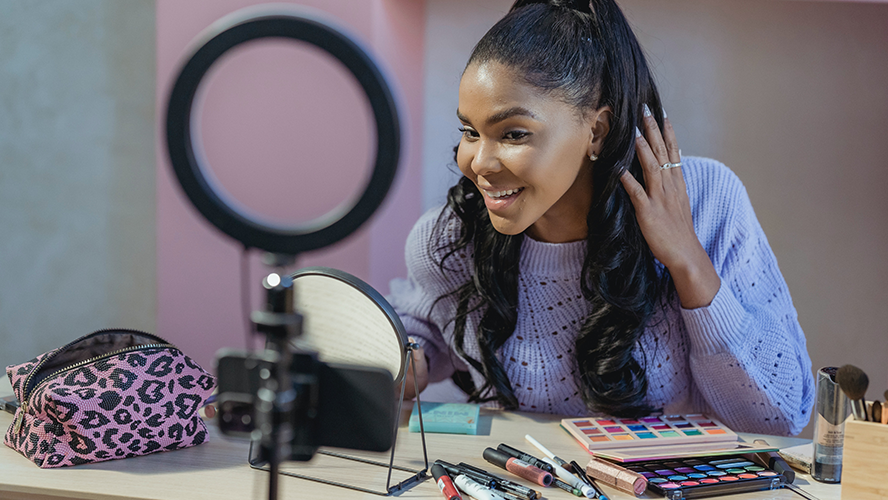From apparel and clothing to hair and beauty products to cars to non-profit organizations, celebrities have been spokespeople for various companies to put recognizable faces to brand names. In recent years, however, social media influencers from Instagram, Vine, and more have been used to promote a product, share a message, or drive traffic to a website. Instead of connecting to celebrities, try connecting to social influencers with our guide.

Who
Social influencers are people who have built up their personal brand and audience through regularly posting quality, organic content, leading to a large, highly engaged audience. When companies look for influencers to support their brands, they look for a correlation between the number of followers and number of engagements. If a person with 100,000 followers only gets 50 likes and a few comments per post, they don’t have an engaged audience. If someone only has 2,500 followers and hundreds of likes and comments per post, they are then considered an influencer.
What
Simply put, influencer marketing is when companies or agencies reach out to influencers for promotional purposes. Influencers typically get products sent to them free-of-charge to post reviews or share a photo, attend events where the company foots the bill, or share a certain message with their audience.“Influencers like myself are really important because they choose what the trends are going to be,” said Shea Marie, an influencer in the fashion industry. “That is why designers invite influencers to come sit at their shows because they are going to post photos that are going out to millions and millions of people.”
Why
As social influencers grow in popularity, they gain their followers’ trust with their organic content. When a brand reaches out to have an influencer write or post about their product, the influencer determines whether or not the brand makes sense with their lifestyle and what they support, and then finds a way to promote the product without looking like an ad. If the sponsored post looks like every other post they share, it’s more of a genuine recommendation as opposed to a glaring ad. It’s important to let the influencer know the necessary information that they need to include, while entrusting him or her to creatively and authentically represent the sponsored content.
How
When searching for influencers to elevate a brand, look for people who have similar target audiences as your company, consistently share good content, and are people you feel generally comfortable with representing your brand. Once these people have been identified, start reaching out and engaging with them on social to begin establishing a relationship with them. If they have organically expressed an interest in your company in the past, even better! Once relationships are developed, present them with the partnership request and let them know what makes them special and why you want to partner with them. But, don’t stop there! After the posts go out and all is said and done, it’s important to maintain a good relationship with them by engaging with their posts every now and then. You shouldn’t bombard them with posts. Instead, leave a comment when you genuinely feel connected to a piece of content.






